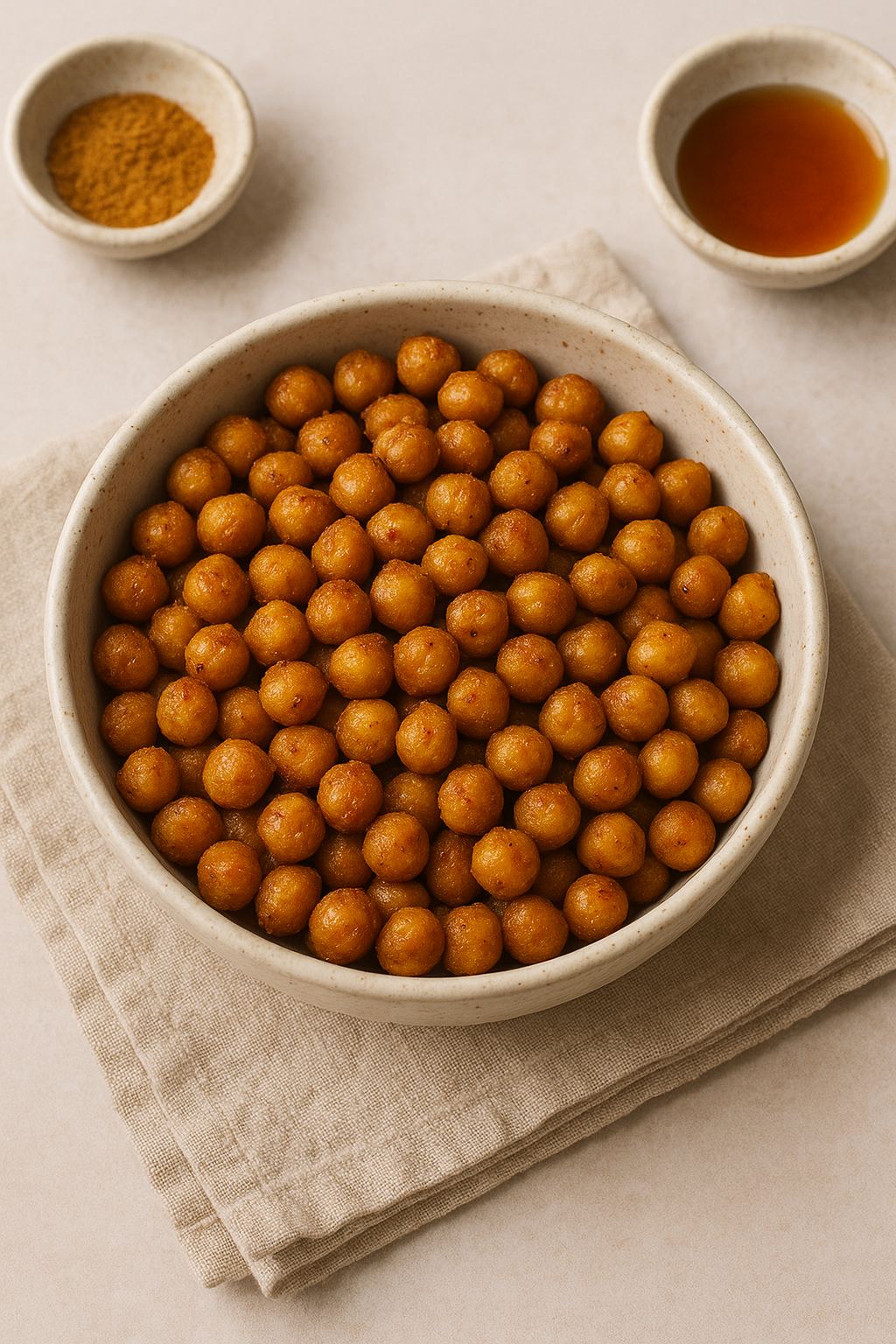You have probably heard the call to cut out sugar for daily health and longevity in many social media posts. However, when it comes down to implementing this practice, the strategy and ability to resist might be lacking in comparison to your cravings. There are so many ways to consume some sort of sugar or unhealthy sugar replacement!
Unfortunately, processed sugar has been linked to several health issues: heart disease, breast cancer, colon cancer, nonalcoholic fatty liver disease, obesity, type 2 diabetes, and cognitive decline are all consequences of years of high sugar intake. So, do you have to completely cut out all sweets in order to add years to your life? Not necessarily.
There are several healthy alternatives to sugar that can satisfy your sweet tooth while also providing various health benefits. In this blog post, I will discuss my top three choices for natural sweeteners – Allulose, Stevia, and Monk Fruit – and explain why they are healthier options for your recipes, drinks, or packaged foods.

WHY TO ELIMINATE SUGAR
Eliminating sugar completely in the form of a cleanse is a bit drastic, but it can be an effective way to quickly curb your cravings. It may be a difficult few days or weeks of dealing with headaches and low energy levels while weaning your brain and body off the addiction. While I won’t advise against a sugar cleanse, the end goal should be to limit sugar intake over your lifetime. It is the accumulation of this intake which causes cellular damage, metabolic dysfunction, and resulting degenerative diseases.
When it comes to limiting your intake of refined sugar, most mainstream sources suggest consuming no more than 10% of your daily calories from sugar. However, even a diet where 10% of your daily calories come from sugar is associated with the aforementioned serious health issues. Natural sugars, like those found in a banana or berries, tend to come along with vitamins, minerals, water content, and fiber that slow down your body’s digestion of sugar. So, in general, try to avoid foods with ‘added sugars’, which are typically found in packaged foods, drinks, and desserts. More often, when grocery shopping or eating out with friends, try to pass on products that list fructose and high fructose corn syrup.
You can learn more about the damaging effects of sugar on longevity in this conversation with Dr. David Sinclair on our Instagram LIVE series, Optimize Longevity.
SERENA’S TOP ALTERNATIVES
Allulose
Although I have been incorporating allulose into my personal use and recipes as a sugar alternative for a number of years, allulose is actually a relatively new natural sweetener that is gaining popularity in the health and wellness community. It is considered a rare sugar as it is found naturally in very small quantities in only a few foods, such as wheat, figs, molasses, dates, and raisins. Allulose, also known as D-psicose, is a monosaccharide, or single sugar, most commonly produced through a natural fermentation process enzymatically converting fructose. Interestingly, it has the same chemical formula as fructose does, but it is arranged differently. It also has only 10% of the calories of regular sugar, making it a great option for those looking to lose weight by reducing their calorie intake.
Unlike other low-calorie sweeteners, allulose has not been found to cause digestive issues or affect blood sugar levels, making it suitable for diabetics. In fact, it has been found to improve insulin sensitivity and reduce inflammation in some cases! The anti-inflammatory properties may help prevent obesity and other chronic diseases. Your body absorbs about 70% into your blood through the digestive tract, and the rest is passed out of the body through your urine. An additional benefit of allulose is that it doesn’t cause tooth decay because it is not fermented by bacteria in your mouth.
Stevia
Stevia is a popular alternative to sugar, derived from the leaves of the stevia rebaudiana plant. It is also calorie-free, making it a great option for those trying to lose weight or manage blood sugar levels. Stevia has been found to have several health benefits, such as reducing high blood pressure, improving cholesterol levels, enhancing beneficial gut bacteria levels in the gut, and reducing inflammation. It also does not promote tooth decay like regular sugar does. Although it is considered to be 200-300 times sweeter than regular sugar, some people may find that stevia has a bitter aftertaste, which can be problematic in certain recipes. I enjoy stevia in this recipe for overnight oats.
However, some people may experience issues with stevia. There have been cases of kidney damage, gastrointestinal issues, low blood pressure, and endocrine disruption from overconsumption, using supplements, consuming it from low-quality sources, or simply due to an aversion to the ingredient.
Monk Fruit
Monk Fruit, also known as Luo Han Guo, is a sweetener derived from the fruit of the Siraitia grosvenorii plant. It is up to 200 times sweeter than sugar but has no calories, making it a great option for weight loss. Like allulose and stevia, monk fruit does not affect blood sugar levels and has been found to have several health benefits, such as reducing inflammation, improving insulin sensitivity, and even preventing cancer. However, it can be quite expensive and may be more difficult to find in stores.
Other Serena-Approved Sweeteners
- Honey
- Pure maple syrup
- Dates
- Banana puree
- Whole fruit berries
- Organic coconut sugar

SWEETENERS TO AVOID
While there are many great alternatives to sugar, some sweeteners are best avoided. Here are a few examples of sweeteners that have been linked to health issues over the years:
- Aspartame: may impair memory, increase oxidative stress on the brain, and be linked to mental wellness issues
- Sucralose: 600 times sweeter than sugar and may be addicting
- Acesulfame K: causes mood issues, possibly some types of cancer, disrupts liver and kidney function, and may lead to autism
- Saccharin: associated with health issues, including cancer
- Xylitol: not absorbed well and can cause allergic reactions for certain people
It’s important to opt for sweeteners derived from plants, as they are generally a healthier and safer option. Words like “diet”, “sugar-free”, “no” or “low calorie”, and “no”, “low”, or “zero sugar” may indicate the presence of one of the sweeteners listed above.
In Conclusion…
Choosing a new sweetener can be a great way to improve your health while still enjoying your favorite sweet treats. Allulose, stevia, and monk fruit are all great options that offer a range of health benefits without the negative effects of processed sugar. However, it’s important to use these sweeteners in moderation and remember that too much of anything can be harmful to your body. Opt for natural sweeteners in small quantities and combine them with other healthy ingredients to create delicious, nutritious treats that will support your overall health and well-being.
by





